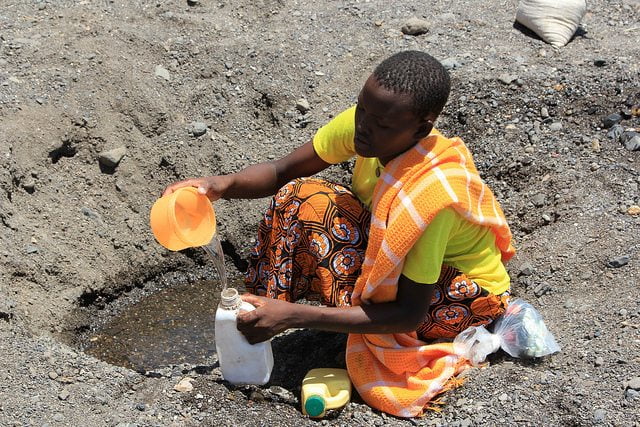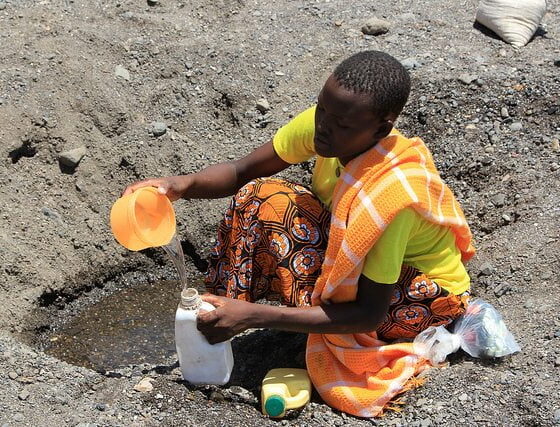

Economy
UN: world must address water challenge or risk conflict
Without large new water-related investments many societies will soon confront “rising desperation and conflicts over life’s most essential resource”, according to a new report published by the UN.
Population increases and climate change are expected to put more people at risk of extreme water scarcity in the coming decades. One study suggested that without climate change mitigation policies, half of the world could be faced with extreme water scarcity by the end of the century.
The latest UN report has been published ahead of post-2015 Sustainable Development Goals that are set to be adopted in September. The paper notes continued stalling on addressing the challenge of water, coupled with population growth, economic instability, disrupted climate patterns and other variables, could reverse “hard-earned gains and preclude meaningful levels of development that can be sustained in the future”.
In total it is estimated that the world’s water and wastewater infrastructure maintenance and replacement deficit is building at a rate of $200 million (£129m) each year. The UN suggests diverting fossil fuel subsidies to address the problem.
The report focuses on ten countries, including Canada, Indonesia and Singapore, to show how achieving water and sanitation-related Sustainable Development Goals offers a rapid, cost effective way to achieve sustainable development.
Lead author Bob Sanford said, “The consequences of unmet water goals will be widespread insecurity creating more international tension and conflict. The positive message is that if we can keep moving now on water-related Sustainable Development Goals we can still have the future we want.”
The report sets out a series of recommendations. One suggestion is holding the agriculture and energy sectors, which account for around 70% and 15% of world water supplies respectively, accountable for making efficiencies.
The UN also notes that there is a need for a widespread crackdown on corruption in the water sector, particularly in developing countries. The report states that in many places corruption results in the “haemorrhaging of precious financial resources”, siphoning an estimated 30% of funds earmarked for water and sanitation-related improvements. It is suggested that there should be clearly defined anti-corruption protocols and harsh penalties.
Co-lead author Connie Schuster-Wallace explains that all current water management challenges will be compounded by climate change and increasingly unpredictable weather. The UN predicts that within 10 years 25% of all nations on earth will be classified as ‘water-scarce’ or ‘water-stressed’ and by 2040 global demand for freshwater is expected to exceed supply by 40%.
Schuster-Wallace said, “Changes in fundamental hydrology are likely to cause new kinds of conflicts, and it can be expected that both water scarcity and flooding will become major trans-boundary water issues.”
Photo: UK Department for International Development via Flickr
Further reading:
Technology will solve our water problems — if we let it
Half of world could face extreme water scarcity by 2095
Climate change puts more people at risk of water scarcity
Labour seeks fracking restrictions to protect drinking water
Report: achieving renewable energy targets could address water challenges


 Environment12 months ago
Environment12 months agoAre Polymer Banknotes: an Eco-Friendly Trend or a Groundswell?

 Features11 months ago
Features11 months agoEco-Friendly Cryptocurrencies: Sustainable Investment Choices

 Features12 months ago
Features12 months agoEco-Friendly Crypto Traders Must Find the Right Exchange

 Energy11 months ago
Energy11 months agoThe Growing Role of Solar Panels in Ireland’s Energy Future



























